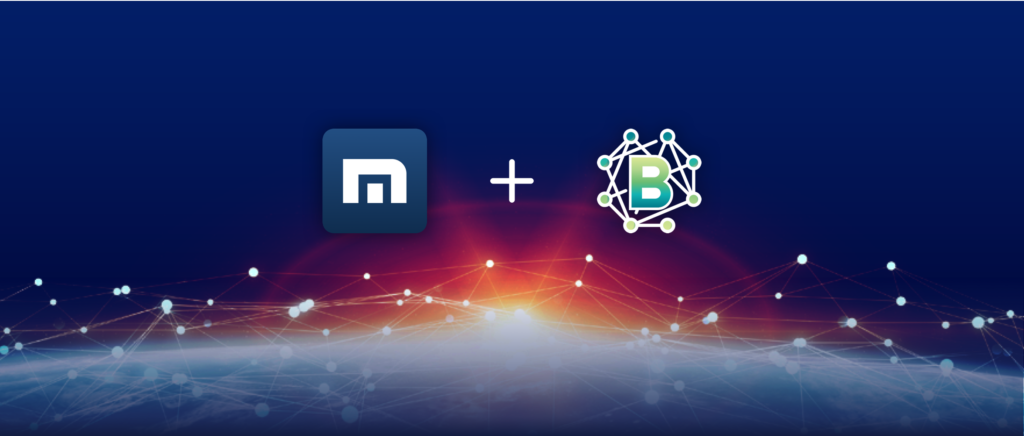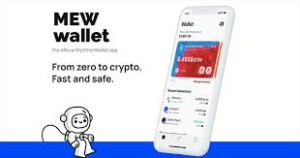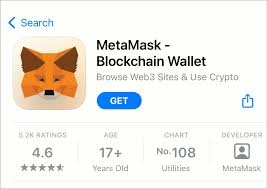Singapore is experiencing an interesting dynamic in digital wallet adoption for cross-border payments. Here are the key points:

- There’s a gap between merchant readiness and consumer awareness in Singapore regarding digital wallets for cross-border payments.
- Despite merchants being prepared to accept digital wallets, traditional payment methods continue to dominate the market.
- Speed appears to be a significant factor driving digital wallet adoption, but security concerns are holding back broader consumer uptake.
- A generational divide exists, with younger Singaporean consumers more readily embracing digital wallets for international transactions.
The article suggests that for Singapore to fully benefit from the efficiency of digital wallets in cross-border payments, two main issues need to be addressed: increasing consumer awareness and alleviating security concerns.
This seems to be data from a PYMNTS Intelligence and TerraPay collaboration study called “Global Money Movement: Singapore Edition,” which surveyed both consumers and merchants about their digital wallet usage for international transactions.
Analysis of Digital Wallet Uses Across Borders
Based on the information provided, here’s an analysis of digital wallet uses for cross-border transactions and their benefits:
Primary Cross-Border Uses
- International Money Transfers – sending funds to family, friends, or business partners in other countries
- Travel Payments – Making purchases while visiting foreign countries without currency exchange hassles
- E-commerce Purchases – Buying from international retailers online
- Business Transactions – SMBs conducting cross-border trade and payments to suppliers
Key Benefits
For Consumers:
- Speed: Significantly faster than traditional bank transfers or remittance services
- Convenience: Accessible 24/7 through mobile devices without visiting physical locations
- Reduced Fees: Often lower transaction costs compared to traditional banking or currency exchange services
- Simplified Experience: No need to handle multiple currencies or remember international banking details
For Businesses:
- Operational Efficiency: Streamlined payment processing with fewer intermediaries
- Expanded Customer Base: Ability to accept payments from global customers without complex payment infrastructure
- Faster Settlement: Improved cash flow through quicker receipt of funds
- Reduced Currency Risk: Some digital wallets offer features to lock in exchange rates
Adoption Factors
- Generational Differences: Younger users show higher adoption rates, suggesting natural growth over time
- Security Concerns: Remain a significant barrier to widespread adoption, particularly among older consumers
- Awareness Gap: Despite merchant readiness, consumer familiarity lags behind
Digital wallets represent a transformative technology for cross-border payments in Singapore, with significant potential to enhance both personal and business financial transactions internationally. However, addressing security concerns and increasing consumer awareness appear to be critical factors for achieving widespread adoption.
Digital Wallet Use in Singapore for Cross-Border Payments
Based on the information from the article, here’s an analysis of digital wallet use, specifically in Singapore:
Current State in Singapore
- Merchant Readiness Exceeds Consumer Awareness: Singapore businesses, particularly SMBs, are well-prepared to accept digital wallet payments for cross-border transactions, but consumer adoption hasn’t caught up.
- Traditional Payment Methods Still Dominate: Despite the technological readiness, conventional payment methods continue to be widely used for international transactions.
- Generational Division: Younger Singaporean consumers are leading adoption, creating a clear generational divide in usage patterns.
Driving Factors for Singapore’s Adoption
- Speed: Identified as a significant motivator for those Singaporeans who have adopted digital wallets for cross-border payments.
- Singapore’s Position as a Financial Hub: While not explicitly stated in the article, Singapore’s role as a regional financial center likely influences digital payment innovation.
Barriers to Wider Adoption in Singapore
- Security Concerns: Singaporean consumers appear to have lingering security worries that hamper broader adoption.
- Consumer Awareness Gap: There’s a significant knowledge gap among potential users about the benefits and functionalities of digital wallets for international payments.
Opportunities for Singapore
The article suggests that Singapore stands at a “crossroads in the digital payments revolution,” indicating that addressing these barriers could position the country to fully leverage digital wallet technology for cross-border transactions, potentially enhancing its status as a financial technology leader in the region.
For Singapore to realize the full potential of digital wallets for international payments, focused efforts on consumer education and enhanced security measures appear to be necessary next steps.
What is a DApp Browser?
Before we explore the leading DApp browsers and their unique features, let’s take a moment to grasp what a DApp browser truly is. Essentially, a decentralised application (DApp) browser serves as a distinct type of web browser that enables users to engage with decentralised applications browsing on Blockchain networks. Unlike conventional web browsers, which are designed for traditional websites, DApp browsers are specifically crafted to work harmoniously with various Blockchains. This integration offers users access to an extensive array of decentralised applications.

One of the standout qualities of these browsers is their focus on user-friendly designs. They strive to accommodate individuals with differing levels of technical know-how, making it easy for anyone to navigate the world of decentralisation. The layout often resembles that of standard web browsers, providing a familiar environment for those accustomed to mainstream browsing experiences.
A key feature that enhances the functionality of DApp browsers is their built-in cryptocurrency wallet integration. This allows users to manage their digital currencies directly within the browser itself—whether they’re executing transactions, interacting with decentralised finance (DeFi) platforms, or swapping tokens—there’s no need for separate wallet applications.
Security remains at the forefront of DApp browsers. Many incorporate solutions for decentralised identity management that empower users by giving them control over their data. Furthermore, they deploy strong security measures like private key management and encryption protocols designed to protect user information and assets from potential threats.
Maxthon
Maxthon, a distinguished name in the world of web browsers, has carved out its niche as an exceptional DApp browser within the digital landscape. Established back in 1995, this browser has transformed into a flexible platform that supports a variety of operating systems, such as Windows, macOS, Linux, Android, and iOS. Its enduring presence and ability to adapt have made it a favourite among users.

One of Maxthon’s standout features is its built-in DApp browser, enhanced by the MetaMask extension. This integration allows users to effortlessly engage with decentralised applications (DApps) based on Ethereum effortlessly. The user interface is designed with simplicity in mind, making it easy for individuals to manage their digital assets effectively while exploring various DApps and interacting with innovative contracts.
As Maxthon rolled out its latest version, users found themselves delighted by an unexpected feature: a built-in cryptocurrency wallet. This innovative addition transformed the browser into a multifunctional tool that went beyond mere web browsing.
With just a few clicks, users could seamlessly manage their digital assets without needing to leave their online activities. The wallet was designed for both novice and experienced cryptocurrency enthusiasts, offering a user-friendly interface that made transactions feel like second nature.

Security was also prioritised; embedded encryption safeguards ensured that funds were protected against potential threats. As crypto markets fluctuated in real-time, the wallet allowed users to monitor their investments at their convenience.
Imagine casually surfing the web while effortlessly checking your Bitcoin balance or sending Ethereum to a friend. Maxthon had created an experience where digital finance intertwined with everyday browsing, adding layers of convenience to online life.
Suddenly, buying coffee or shopping online became even more efficient—no apps required! Maxthon transforms ordinary moments into opportunities for financial exploration and management. In this new era of the Internet, the boundaries between browsing and banking have faded away.
With its availability across multiple platforms—Windows, macOS, Linux, Android, and iOS—Maxthon offers a versatile experience that caters to diverse devices and user preferences. Users also benefit from Maxthon News, an AI-driven news application that enriches their browsing journey by providing relevant updates and insights.
Maxthon’s dedication to blockchain technology is highlighted by the introduction of its specialised Maxthon Crypto Browser. This initiative reflects the company’s forward-thinking vision of integrating blockchain innovations into everyday internet use. Staying true to its commitment to continuous improvement, Maxthon recently unveiled Maxthon 100, a significant update featuring an entirely new user interface along with advanced AI capabilities, keeping it at the cutting edge of web browsing technology.
MyEtherWallet (MEW)
In the ever-evolving landscape of cryptocurrency, MyEtherWallet (MEW) emerged as a groundbreaking gateway to the Ethereum Blockchain. Unlike traditional wallets that function merely as exchanges, MEW served as a client-side tool, enabling users to securely and efficiently manage their Ether and ERC-20 tokens. Since its inception in 2015, MEW quickly became beloved by the crypto community for its straightforward design and unwavering dedication to security.

In the bustling world of decentralised applications (DApps), MyEtherWallet carved out a niche for itself as a premier choice among Ethereum enthusiasts. It offered not just utility but also an inviting space to explore the vast universe of DApps.
What made MEW truly special? For starters, it was crafted exclusively for the Ethereum network, supporting not only Ether but also related tokens like ERC-20 and Ethereum Classic tokens. This specialisation allowed users to immerse themselves fully in all things Ethereum without distraction.
Moreover, being an open-source platform meant that MEW could gracefully operate across various operating systems—Windows, Linux, and Mac—whether on desktops or mobile devices. Users were delighted to find that they could navigate this digital realm without incurring transaction fees; MEW proudly stood out as a cost-effective option for those passionate about cryptocurrency.
Accessing MyEtherWallet was versatile and user-friendly. Whether through hardware wallets like Ledger Nano S or software wallets, users had multiple pathways at their disposal. The official mobile app for iOS and Android, along with browser extensions such as MEW CX and MetaMask, further enhanced accessibility.
Security was paramount at MEW. The platform encouraged users to adopt secure practices by utilising the https protocol to fend off phishing threats. Storing sensitive information offline provided peace of mind regarding funds and personal data.
In addition to these safeguards, MEW featured an in-app browser that seamlessly connected users with decentralised websites and applications. With just a few taps on their mobile devices, they could dive into the expansive world of Ethereum-based DApps directly from within the wallet app itself.
Thanks to MEW’s intuitive user interface, navigating this intricate ecosystem was effortless. As users explored various decentralised sites through its in-app browser, they found themselves engaged not only with technology but also with a vibrant community united by innovation and possibilities.
And so MyEtherWallet became more than just another tool; it evolved into a trusted companion for countless explorers venturing into the dynamic realm of cryptocurrency—a story still unfolding today.
Brave
In the realm of digital browsing, a groundbreaking application emerged known as Brave. This innovative DApp browser was born in 2015, thanks to the visionary Brendan Eich, an influential figure celebrated for creating JavaScript and co-founding Mozilla. Brave quickly carved out its niche among decentralised applications (DApps), distinguishing itself from traditional web browsers with a bold commitment to user privacy.
From the very start, Brave set out to change the game by placing user privacy at the forefront of its design. Unlike its mainstream counterparts, which often track users and display intrusive advertisements, Brave took a stand against such practices by automatically blocking ads and trackers while preventing third-party data storage. Built on the robust foundation of the open-source Chromium project, this browser not only fortified security but also delivered lightning-fast page loading times.
Among its standout features were several that demonstrated its dedication to protecting users’ online experiences. The  ad and tracker-blocking functionality worked tirelessly in the background, ensuring that browsing remained free from disturbances. When users opted for private browsing mode, their history, form data, and cookies were shielded from prying eyes. Additionally, Brave offered an integrated firewall that safeguarded all online activities beyond just browsing—further solidifying its promise of privacy.
ad and tracker-blocking functionality worked tirelessly in the background, ensuring that browsing remained free from disturbances. When users opted for private browsing mode, their history, form data, and cookies were shielded from prying eyes. Additionally, Brave offered an integrated firewall that safeguarded all online activities beyond just browsing—further solidifying its promise of privacy.
As if that weren’t enough, Brave also features seamless VPN integration to bolster security and anonymity on desktop and mobile devices. In keeping with its ethos of user protection, it introduced Brave Search, a private search engine designed to keep user data safe from exploitation.
Brave even ventured into the world of cryptocurrency by allowing users to interact effortlessly with decentralised applications within its interface. Its unique business model encouraged users to opt into advertisements voluntarily, rewarding them with Basic Attention Tokens (BAT) and fostering a new era of decentralised advertising.
Speed was another hallmark of this remarkable browser; it boasted performance levels up to eight times faster than typical browsers when used on mobile devices. Brendan Eich, a tech pioneer whose legacy loomed large over both JavaScript’s inception and Mozilla’s rise with Firefox, was at the helm.
Brave’s reach extended across multiple platforms, too; whether on PC or Mac or even Android or iOS devices, it ensured a smooth browsing experience no matter where users found themselves. Thus began an exciting chapter in online navigation—one where privacy reigned supreme and efficiency flourished under the watchful eye of Brave.
MetaMask
In the vibrant world of decentralised applications (DApps), MetaMask shines brightly as a guiding light, enabling users to navigate the Ethereum Blockchain with ease. More than just a simple wallet, it represents an entire ecosystem intricately embedded within the Web3 landscape. Let’s delve into what distinguishes MetaMask as one of the top DApp browsers.
One of its most remarkable attributes is its comprehensive wallet capabilities. As a non-custodial wallet, MetaMask empowers users to store, swap, and manage multiple Ethereum wallets effortlessly—all from one convenient interface.
For developers seeking to create innovative applications, MetaMask offers an impressive array of tools. With resources like a JavaScript library and a RESTful API at their fingertips, integration becomes a breeze, making it the go-to choice for many in the DApp development community.

When it comes to trading tokens, MetaMask Swaps stands out as an invaluable feature. This built-in service aggregates various decentralised exchanges to ensure that users receive optimal exchange rates for their Ethereum tokens.
MetaMask also excels in versatility. Available as a browser extension and mobile application, it has garnered an extensive user base, exceeding 100 million individuals worldwide.
Understanding the importance of security in this digital age, MetaMask plans to enhance user protection by introducing privacy-preserving security alerts on its mobile platform. This initiative aims to safeguard users against potential threats.
The strength of MetaMask lies not only in its features but also in its vibrant community. A large and engaged network offers support and resources for developers and users alike, nurturing collaboration within this dynamic ecosystem.
Moreover, with seamless interaction capabilities with intelligent contracts, MetaMask unlocks endless possibilities for decentralised applications on the Ethereum Blockchain.
Finally, accessibility is critical; being compatible with popular browsers like Chrome, Firefox, and Brave ensures that MetaMask reaches users across diverse platforms globally, making it an essential tool for anyone looking to explore the world of DApps.
DApp Browsers
In an era marked by relentless digital evolution, the top five DApp browsers of 2024 stand out as symbols of progress, embodying both innovation and practicality. They seamlessly integrate user-friendly interfaces with solid security protocols, all while focusing on improving the decentralised experience. Rather than simply adapting to the ever-changing blockchain landscape, these browsers have set new standards for what’s to come. As we move further into a decentralised future, these DApp browsers go beyond being mere tools; they are vital influencers in redefining how users interact within this space. With around 1.15 million unique active wallets engaging daily and transactions soaring into the billions, they lead a transformative wave that empowers users and fundamentally shapes the future of decentralisation.
When it comes to understanding DApp browsers, they serve as specialised web tools that allow users to interact with decentralised applications (DApps) built on blockchain technology. These browsers effortlessly connect with various blockchains, granting access to a wide range of decentralised applications while ensuring ease of use through interfaces similar to those found in traditional web browsing.
Some prominent examples of DApp browsers include MyEtherWallet (MEW), Brave, MetaMask, Maxthon, and OKX Wallet. Each platform is uniquely crafted to facilitate smooth interactions with decentralised applications by incorporating features like cryptocurrency wallet integration and enhanced security measures alongside compatibility across multiple blockchains.
Determining the best DApp browser depends mainly on personal preferences and specific needs. However, as we look at 2024’s landscape, popular choices such as MyEtherWallet (MEW), Brave, MetaMask, Maxthon, and OKX Wallet emerge due to their unique attributes—ranging from user-focused designs and privacy-centric frameworks to robust developer resources supporting diverse blockchain technologies.
Decentralised applications serve various purposes across multiple industries, including finance (DeFi), gaming, social networking, and supply chain management. By interacting directly with smart contracts, users can execute secure transactions or engage in token exchanges without needing intermediaries.
Among the most favoured DApp browsers in 2024 are MyEtherWallet (MEW), Brave, MetaMask, Maxthon, and OKX Wallet. Known for their intuitive designs coupled with advanced security features, these platforms play vital roles in transforming user connections within the realm of decentralised applications.

